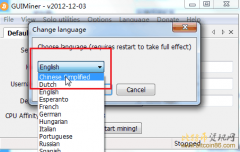Filecoin是区块链经济,参加者在漫衍式网络长举办生意业务。通过节点参加者在他们挖掘的区块中记录处理惩罚动静来更新网络状态。有多种动静,包罗存储入库,存储生意业务,正在举办的证明,令牌生意业务等。可是,由于链机能,可伸缩性和验证时间所施加的约束条件,一个块中可以处理惩罚的动静数受到限制。这样,在任何给按时间,网络上只有动静的子集可以使其成为一个块。
Filecoin is a blockchain economy, in which participants trade on distributed networks. The network status is updated by node participants recording processing messages in their mined blocks. There are many kinds of messages, including storage and warehousing, storage transaction, ongoing certification, token transaction, etc. However, due to the constraints imposed by chain performance, scalability and verification time, the number of messages that can be processed in a block is limited. In this way, at any given time, only a subset of messages on the network can make it a block.

另外,执动作静会耗损网络上的计较和存储资源。在这里,“气体”开始发挥浸染,以权衡动静耗损的资源。动静耗损的气体直接影响发送者将动静提交到区块链所付出的本钱。而且一个块中所有动静的总用气量是有界的。天然气可以被视为Filecoin区块链的燃料,就像汽车燃料一样。在举办公路观光之前,您必需付出在行驶间隔和为山上和下坡引擎供电时耗损的汽油。同样,Filecoin上的动静发送者要为“敦促”或“敦促” Filecoin区块链上的动静执行的气体付费。
In addition, executing messages consumes computing and storage resources on the network. Here, "gas" comes into play to measure the resources consumed by messages. The gas consumed by the message directly affects the cost paid by the sender to submit the message to the blockchain. And the total gas consumption of all messages in a block is bounded. Natural gas can be regarded as the fuel of Filecoin blockchain, just like automobile fuel. Before the road trip, you must pay for the gasoline consumed in driving distance and powering the engines on the mountain and downhill. Similarly, the message sender on Filecon has to pay for the gas that "pushes" or "pushes" the message execution on the Filecon blockchain.
从汗青上看,在其他区块链中,节点参加者以本机钱币指定GasFee,然后按照动静耗损的天然气量向出产节点参加者的区块付出优先用度。可是,天然气耗损是整个网络应包袱的本钱,因为网络上的每个节点都必需耗费存储和计较资源来验证每条动静并保持网络的一致状态。这样,基于特定动静的气体利用量,会燃烧一些气体以赔偿网络。不散布此本钱会造成鼓励失调,因为成块出产的节点参加者大概会免费包括计较上昂贵的动静,而其他人则会为此支付价钱。
Historically, in other blockchains, node participants designated GasFee in their local currency, and then paid priority fees to the blocks of production node participants according to the amount of natural gas consumed by messages. However, natural gas consumption is the cost that the whole network should bear, because every node on the network must spend storage and computing resources to verify every message and keep the network in a consistent state. In this way, based on the gas usage of a specific message, some gas will be burned to compensate the network. Not spreading this cost will cause incentive imbalance, because node participants in block production may include computationally expensive messages for free, while others will pay for it.
BaseFee的变革速率旨在快速增加潜在的DOS进攻,,并跟着网络变得不那么忙碌而迅速低落。导致网络变得越发拥塞的动静发件人也将通过付出更高的用度来内部化本钱。燃烧还会发生迟钝的通缩压力,使所有网络参加者受益。回到我们的公路观光类比中,思量一下汽车中的天然气之类的天然气,以及正常交通中的网络。
The rate of change of BaseFee is designed to rapidly increase the potential DOS attacks and decrease rapidly as the network becomes less busy. Senders who cause the network to become more congested will also internalize the cost by paying higher fees. Burning will also generate slow deflationary pressure, which will benefit all network participants. Back to our road trip analogy, consider natural gas such as natural gas in automobiles and networks in normal traffic.
假如阶梯拥堵(譬喻在岑岭时段),而且交通停走,您的汽车将耗损更多的汽油。在这种环境下,大概需要稍等半晌然后再开始观光。沟通的理论也合用于Filecoin网络-当网络流量拥塞时,汽油费将很高,因此期待稍后再试大概是有意义的。
If the road is congested (for example, during rush hour) and the traffic stops, your car will consume more gasoline. In this case, it may be necessary to wait a moment before starting the trip. The same theory applies to Filecoin network-when the network traffic is congested, the gas cost will be high, so it may be meaningful to wait and try again later.
郑重声明:本文版权归原作者所有,转载文章仅为传播更多信息之目的,如作者信息标记有误,请第一时间联系我们修改或删除,多谢。











